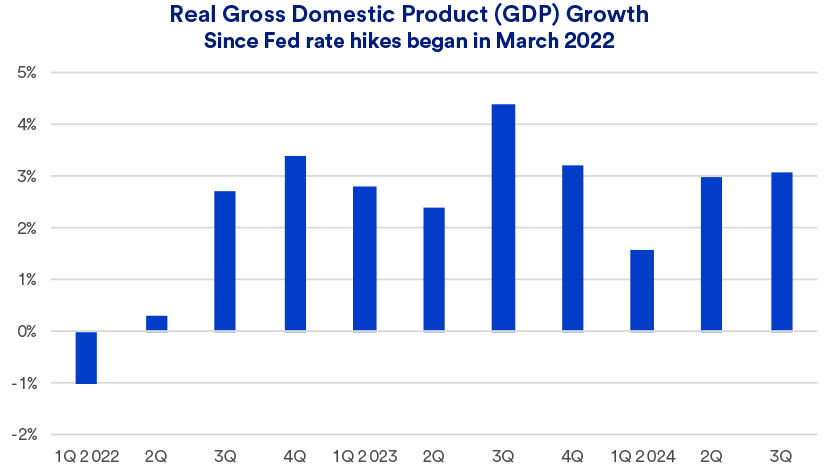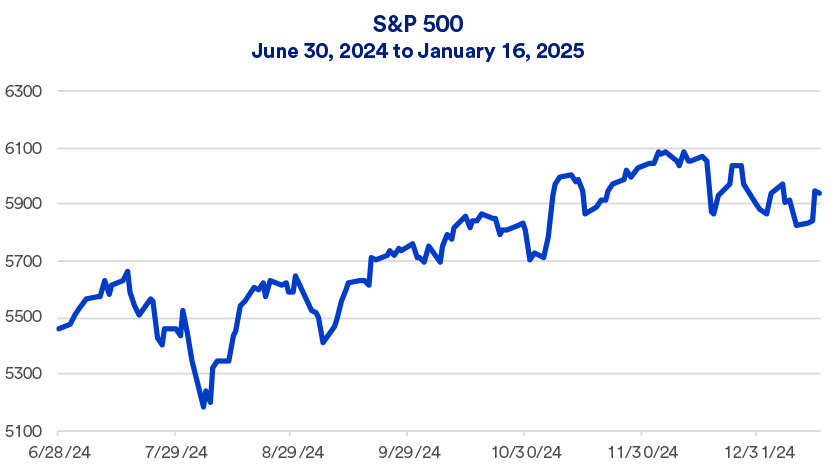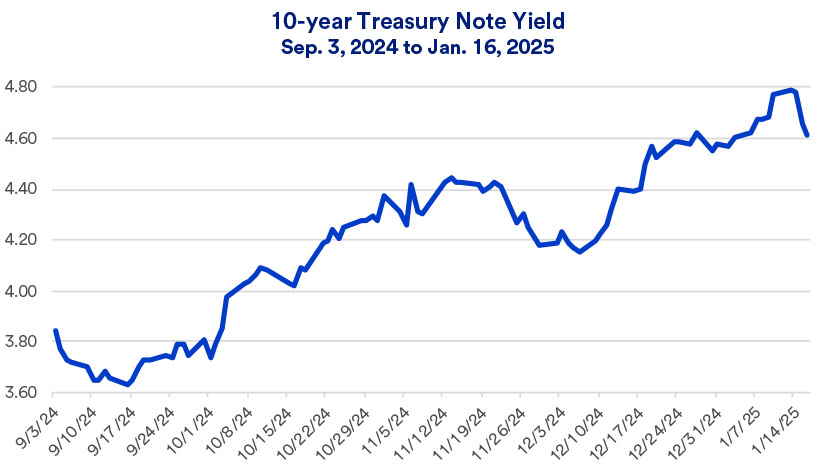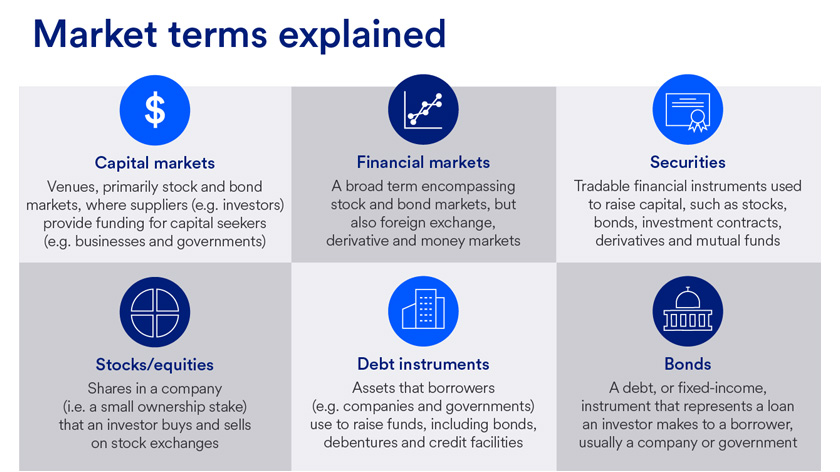What are types of capital markets?
Capital markets are most commonly consist of stock and bond markets.
- Stock (equities) is issued by a corporation, providing an ownership stake in the firm. Individuals and institutions can purchase stock in the firm, obtain voting rights as a shareholder, and be a recipient of dividends paid out by the corporation from its earnings (profits). Stock values can rise and fall, and investors can re-sell shares through an exchange on the secondary market, which is where bonds or shares of stock are bought and sold after their initial public offering.
- A variety of entities issue bonds, such as governments, school districts and corporations. By purchasing a bond, the investor becomes a lender and is due interest and principal payments. Bondholders always take priority over stockholders when it comes to repayment, should the entity that issued the security face financial difficulty, such as bankruptcy.
How do capital markets work?
A key to capital markets is the issuance of securities. Entities seeking to raise capital will issue debt or equity securities that are exchanged with investors. A corporation, for example, may issue new shares of stock, at a set price. However, once on the open market, the price of a security is generally always changing, reflecting demand in the market.
When raising capital, companies or entities may issue new shares of a stock or bonds, with proceeds from investors going directly to the issuer to meet its current financial purposes. Original issues of stocks and bonds are not always accessible to individual investors, such as in an initial public offering (IPO) of stock. Most individuals purchase stocks on the secondary market, where those who previously purchased stocks or bonds can re-sell the securities they hold.
How do capital markets differ from financial markets?
There are similarities between the two; however, capital markets typically refer to the issuance of new securities to raise capital, while financial markets can refer to all forms of securities trading.
Financial markets encompass a wide variety of exchanges involving traditional securities like stocks and bonds, as well as other types of assets and contracts. Most individuals trade securities on the secondary market.
Talk to your financial professional
As you assess your own financial goals, understanding the current and anticipated performance of capital markets may help you more effectively position your assets to achieve your objectives. Discuss your circumstances with your wealth professional to help determine the best approach for you.
Our investment strategies are designed to weather all types of market cycles. Learn about our investment management approach.







